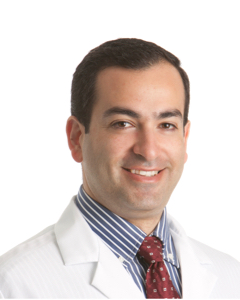A good night’s rest can be harder than it sounds, particularly when you reach your mid-60s.
But getting the right amount of sleep -- and making sure the quality of your rest is what it ought to be -- is key to avoiding serious medical conditions as you age.
Changing Sleep Patterns
As you get older, your need for sleep changes. Infants require 14 to 17 hours of sleep. Once you reach adulthood, your sleep needs are down to just seven to nine hours each night. At 65 or older, you only need seven to eight hours of sleep.
That’s not as easy as it might sound.
Older Americans are more likely to have difficulty falling asleep. Once asleep, they’re more likely to wake up during the night. Some of that is a natural part of aging. Other times it has to do with health conditions like sleep apnea, medication or bad sleeping habits.
The Science of Sleep
Sleep is much more involved than closing your eyes, nodding off and waking up. It’s a complex physiological activity in which the brain at times is just as active as during waking hours, furiously processing and breaking down the day’s information.
This is especially true during the stage of sleep known as REM, an acronym for “rapid eye movement.” During this period, the brain kicks into overdrive and dreams become more vivid. At the same time, the body enters a period of near paralysis, though the eyes, cardiovascular and breathing functions continue.
As people age, however, they experience diminished periods of REM sleep, which is essential not only for a good night’s rest but to maintain memory, creativity and other cognitive functions.
Health Consequences
Too little sleep -- or too much -- also can have potentially serious physical consequences. Older Americans who get too much sleep -- more than nine hours -- are at higher risk of having a heart attack or stroke.
Too little sleep -- fewer than five hours each night -- not only increases the risk of cardiovascular and pulmonary disease, it can lead to a hormonal imbalance that results in weight gain, even if you’re sticking to a healthy diet.
Bad Habits, Good Habits
Sleep changes with age, and there’s little to be done about that. You can, however, get the most out of your rest by adopting healthy sleeping habits, such as:
- Make a sleep schedule and stick to it. That means going to bed and getting up about the same time each day.
- Keep your bedroom is quiet and dark.
- Avoid eating two to three hours before bed.
- Avoid caffeinated drinks at night, and that includes iced tea and many soft drinks.
- Avoid electronic devices and TV in bed. Bright lights stimulate a gland behind the eye that keeps people awake.
- Restless pets might wake you up, so keep them out of the bedroom at night.
- Don’t nap too late in the day, and keep naps to 30 minutes or less.
- If you have acid reflux, sleep with your head in an elevated position.
- Go easy on alcohol. It may make you drowsy, but once the alcohol wears off you stand a better chance of waking up in the night.
- Avoid tanking up on water before bedtime to reduce the frequency of bathroom trips during the night.
If you have persistent trouble sleeping, consult your doctor. Tests are available that could help pinpoint a treatment.
Choose to Stay in Touch
Sign up to receive the latest health news and trends, wellness & prevention tips, and much more from Orlando Health.
Sign Up





